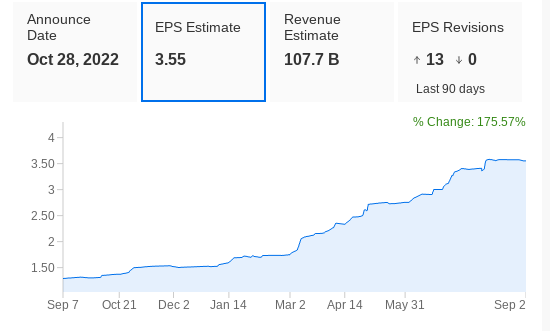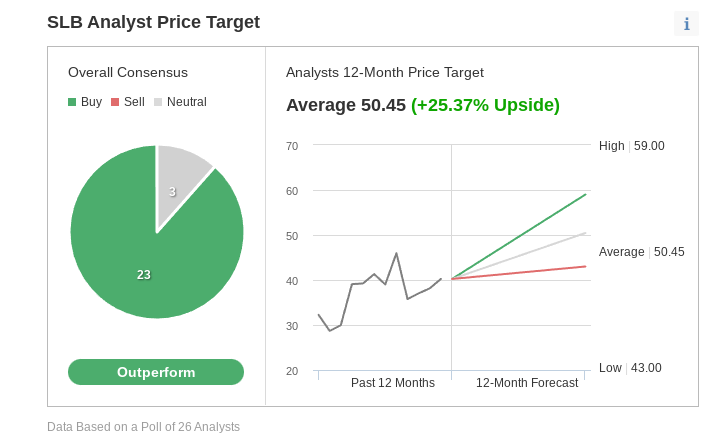- Signs that the powerful rally in oil stocks is fizzling out are beginning to emerge
- Despite some short-term headwinds, the world’s largest oil companies have become a much safer bet
- Oil companies are rolling in cash, and that windfall should continue to benefit investors in the shape of dividends and buybacks
Oil stocks have been one of the rare bright spots in global equity markets this year. Vanguard Energy Index Fund ETF (NYSE:VDE) is up 48.9% this year, massively outperforming the benchmark S&P 500, which has dropped around 14% during the same period. The ETF gained about 71% during the past year.
However, after these powerful gains, some signs show that this powerful rally could be fizzling out. Crude prices have shed almost a third of their value since June, giving back all the gains since Russia’s invasion of Ukraine. With that decline, VDE has also lost about 15% since its June high.
The reversal was triggered by the increasing likelihood of a global recession amid rising interest rates and the weakening demand from China, where authorities continue to impose strict lockdowns to prevent COVID-19 spread.
While it remains difficult to predict the future direction of oil markets due to its wide range of variables, I am still bullish on some energy stocks, as they remain significantly cheaper than their S&P 500 peers based on their forward price to earnings.
In addition, oil stocks provide a hedge against the growing risk of escalation in hostilities between Russia and Ukraine.
Much Safer Bet
The result of this sudden change in outlook after the demand destruction during the peak of the COVID-19 pandemic is that the world’s largest oil companies have become a much safer bet for long-term investors than before the pandemic.
Highlighting these secular tailwinds for the energy sector, in a recent note, Goldman Sachs said that “the sweet spot” for energy stocks is around $90 per barrel for Brent in the long term. Brent futures are currently hovering around the $90 mark, trading at $94.36 a barrel on Monday.
Goldman Sachs' note adds:
“If we can average that over the better part of the next 5-10 years, energy stocks can claw back some of a decade of lost performance.”
Another solid reason for owning energy stocks is that these companies are rolling in cash, and that windfall will continue to benefit investors in the shape of dividends and buybacks. Soaring oil and gas prices have boosted energy companies’ operations, with upstream players on track to report the highest-ever free cash flows of as much as $1.4 trillion this year, according to a recent report from Deloitte.
But how to benefit from this long-term bull run in energy stocks?
Sticking with the companies with diversified revenue streams and those well positioned to weather future downturns is a good way to go. I continue to like Exxon Mobil Corp (NYSE:XOM) and Chevron Corp (NYSE:CVX), North America’s largest oil and natural gas companies, as they’ve both posted their highest-ever profits in the past quarter.
Exxon Mobil Earnings Estimates

Source: InvestingPro
Exxon said last month that global energy supplies should remain tight and expensive for the foreseeable future. Chevron, meanwhile, promised investors a massive increase in share buybacks even as it cautioned that the cost of doing business would climb.
Chevron, which increased its buyback plan to $15 billion, has been adamant that shareholder rewards must be paid consistently through volatile commodity cycles and not pared back when energy prices dip.
Another stock to take advantage of the energy sector’s rebound is the world’s largest oil-field services company, Schlumberger (NYSE:SLB), where global demand-led capital spending will likely drive an exceptional multi-year growth cycle.

Source: Investing.com
SLB stock has gained more than 30% this year, but analysts still remain bullish, with more than 85% giving a buy rating to the stock. Their 12-month consensus price target implies a 25% jump from the current levels.
Bottom Line
Energy stocks, including XOM, CVX, and SLB, remain attractive even though oil prices have slid from their peak this year. These companies have beefed up their finances in the current bull run, expanding their capabilities to weather future downturns and continue to reward investors in the shape of dividends and buybacks.
Disclosure: The writer owns shares of Exxon.
